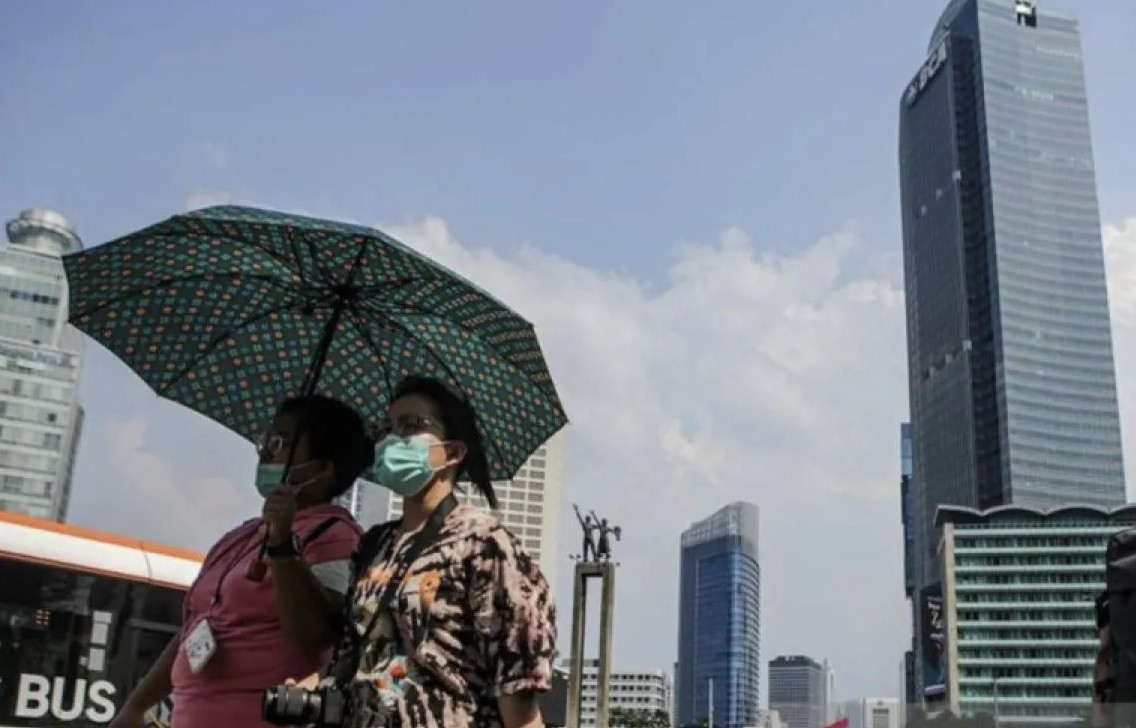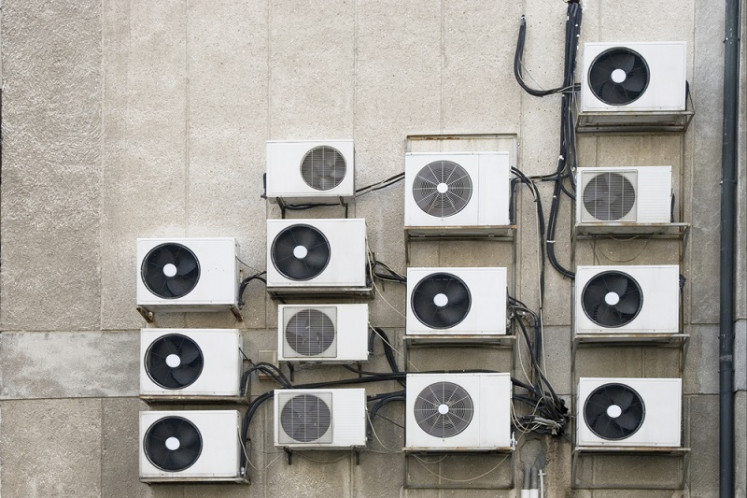Hot new world
However we define this sweltering weather, the past few weeks may offer a glimpse of our future: hotter days, and more of them, amid the climate crisis.
 Jakarta residents walk under sun heat at the Hotel Indonesia traffic circle in Jakarta on April 24, 2023. The Meteorology, Geophysics and Climatology Agency attributed unusual atmospheric dynamics as one of the reasons for the hot temperatures in Indonesia in the past few weeks. (Antara/Fauzan)
Jakarta residents walk under sun heat at the Hotel Indonesia traffic circle in Jakarta on April 24, 2023. The Meteorology, Geophysics and Climatology Agency attributed unusual atmospheric dynamics as one of the reasons for the hot temperatures in Indonesia in the past few weeks. (Antara/Fauzan)
I
f you were in Jakarta or elsewhere in the country in the past few weeks, it might have felt something like how Islam describes Judgement Day: as if the scorching sun were a mere hand’s breadth from your head.
Much of the country has been experiencing hot weather recently, with the Meteorology, Climatology and Geophysics Agency (BMKG) reporting a peak temperature of 37 degrees Celsius in the Greater Jakarta area. Some readings by third-party weather services showed that the perceived temperature might have reached 41 degrees.
This hot weather matches the experience of Indonesia’s neighbors, as an ongoing heat wave sweeps over large parts of Southeast Asia. The phenomenon has set new temperature records in some countries, such as in the Philippines, where authorities suspended in-person school instruction as temperatures exceeded 40 degrees.
But the BMKG claims that what hit Indonesia was not a heat wave, saying the region’s current heat wave has been limited to higher latitudes. Instead, it contends, the hot weather in Indonesia is a regular occurrence during the solar equinox, the twice-yearly event in which the sun crosses the equator. The first solar equinox of the year occurred in late March.
However we define this sweltering weather, the past few weeks may offer a glimpse of our future: hotter days, and more of them, amid the climate crisis.
A number of studies predict the world may become still hotter. The year of 2023 was declared the hottest year since global record-keeping began almost two centuries ago. Days when the average temperature hit 37 degrees or more may be even more common in the years ahead.
Adding to concerns, the world is expected to miss the international target of limiting the global temperature increase to 1.5 degrees above the pre-industrial average, given the lack of concrete action from countries.
Indonesian lives are in peril in this hot new world, as the human body cannot function normally amid prolonged exposure to heat. A recent report by the World Meteorological Organization (WMO) estimates that in the past two decades, nearly 500,000 people a year died of heat-related causes, 45 percent of them in Asia.
Such conditions put outdoor workers, especially those in the informal sector with little to no health or occupational protection, at high risk. The suffering, sadly, has already begun; ride-hailing drivers have been found dead on their motorbikes in the middle of the day.
Studies have estimated that Indonesia may lose up to 40 percent of its gross domestic product (GDP) by 2050 if it does little to cut its greenhouse gas emissions. It could even lose more than three quarters of its GDP by the end of the century if it is not serious about halting the temperature rise to 1.5 degrees.
Although we may be late, now is the time for our government and those of other countries to go all out against the climate crisis and abnormal heat.
There should be no excuse for not knowing what to do. Scores of studies outline the steps necessary to keep the global temperature rise below 1.5 degrees.
At the local level, governments should create more tree-shaded and air-conditioned public spaces to allow people to cool down amid the hot temperatures. Internationally, rich countries should help their poorer counterparts through financial aid and technology to help them mitigate climate issues and adapt to this changing world.
Otherwise, for the rest of our lives, we may feel we are a hand’s width away from the unforgiving sun.










